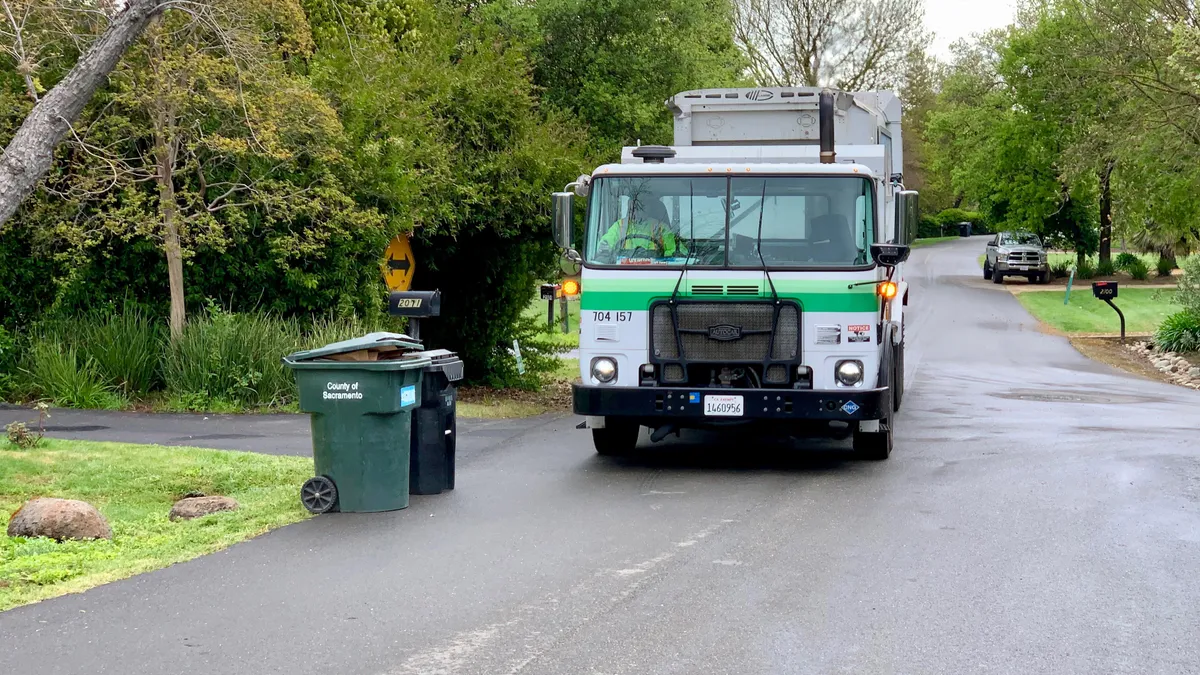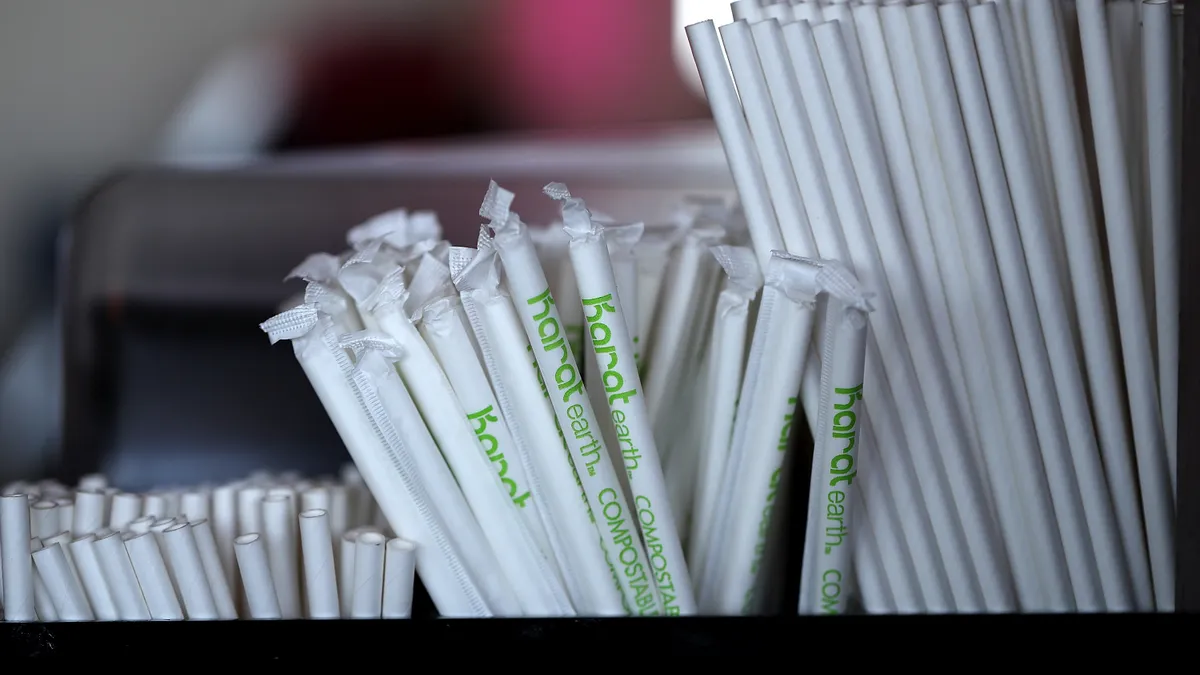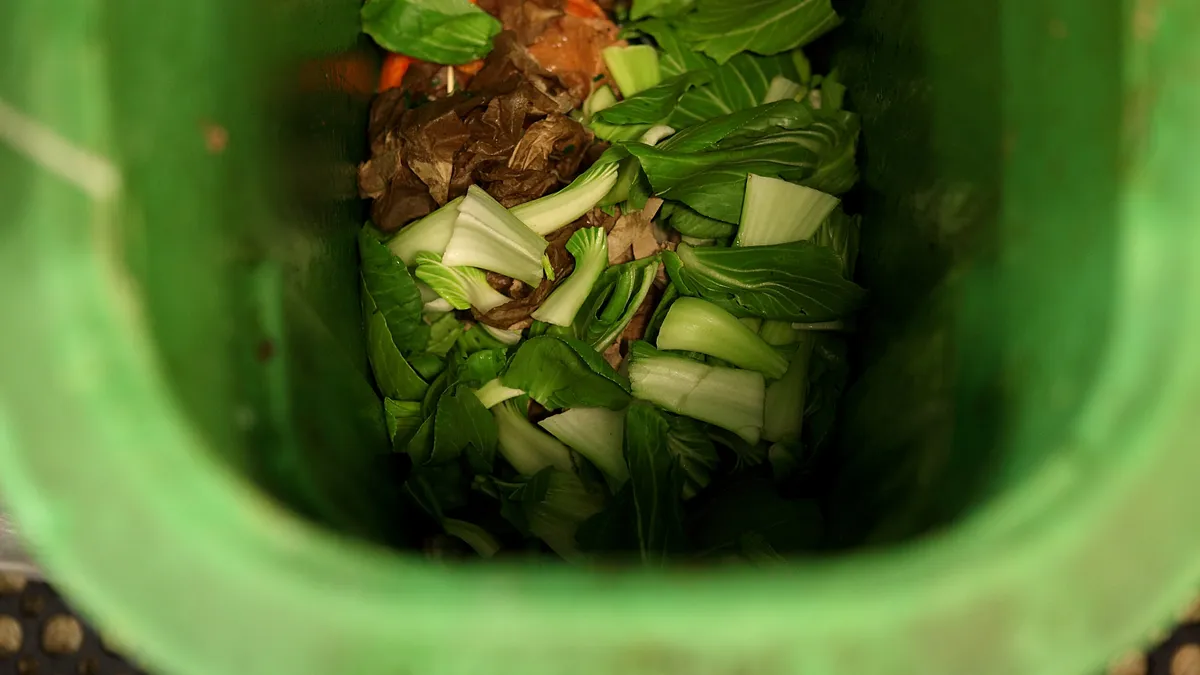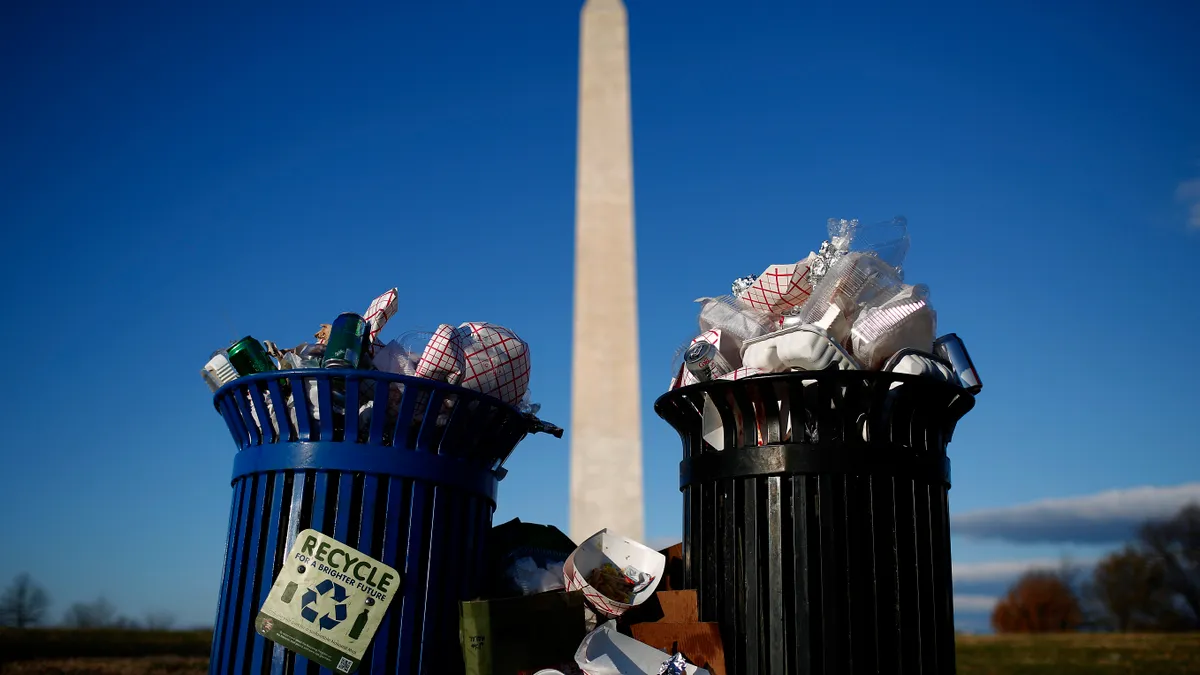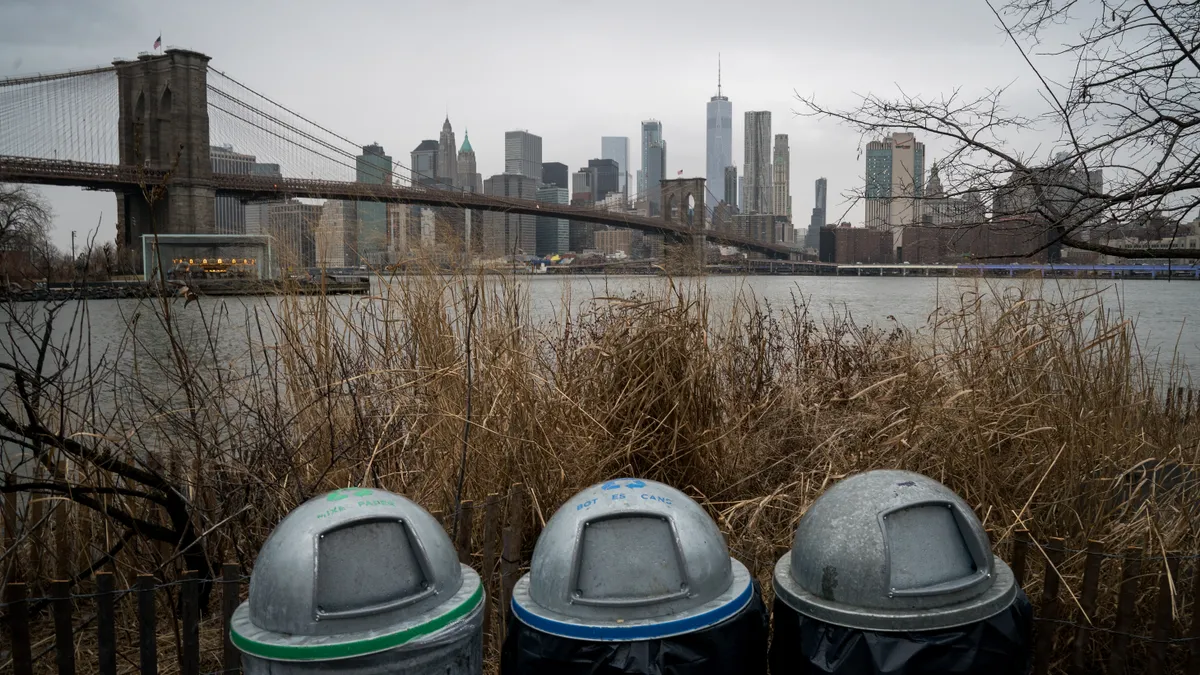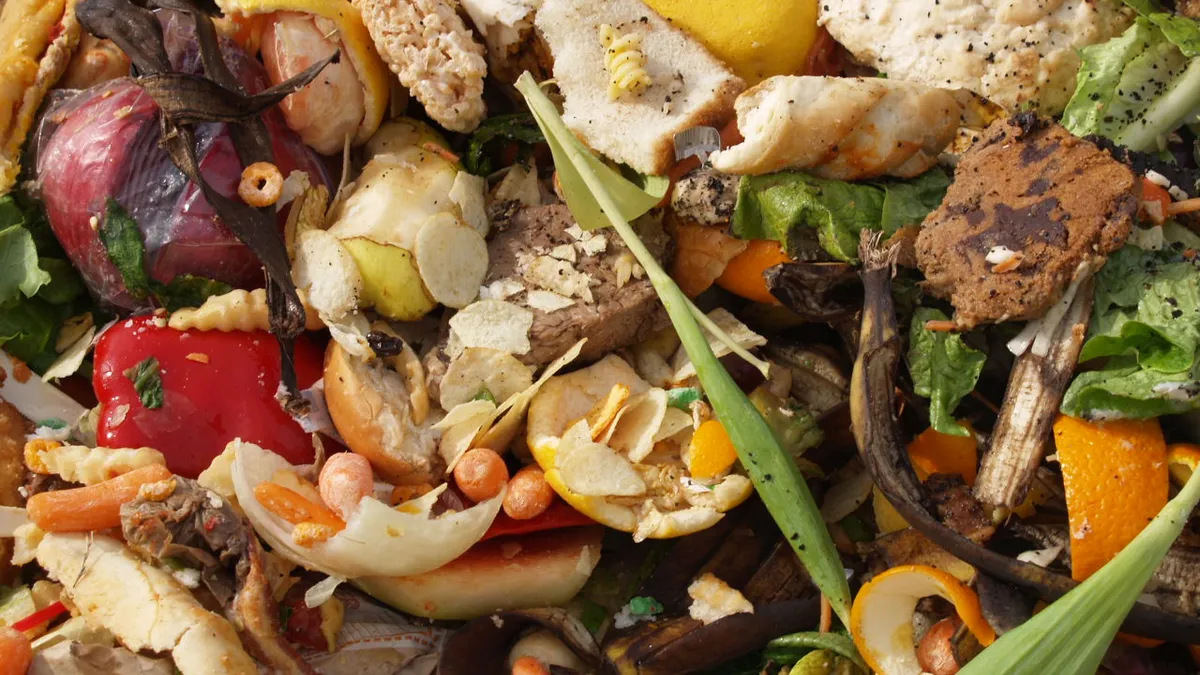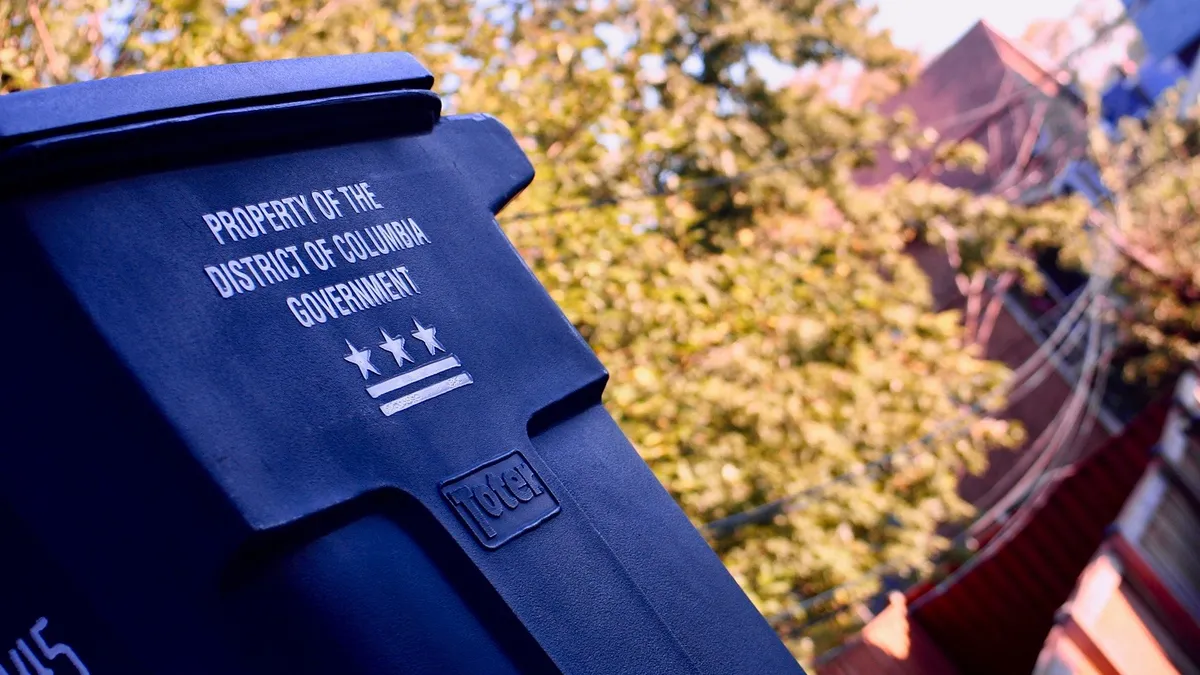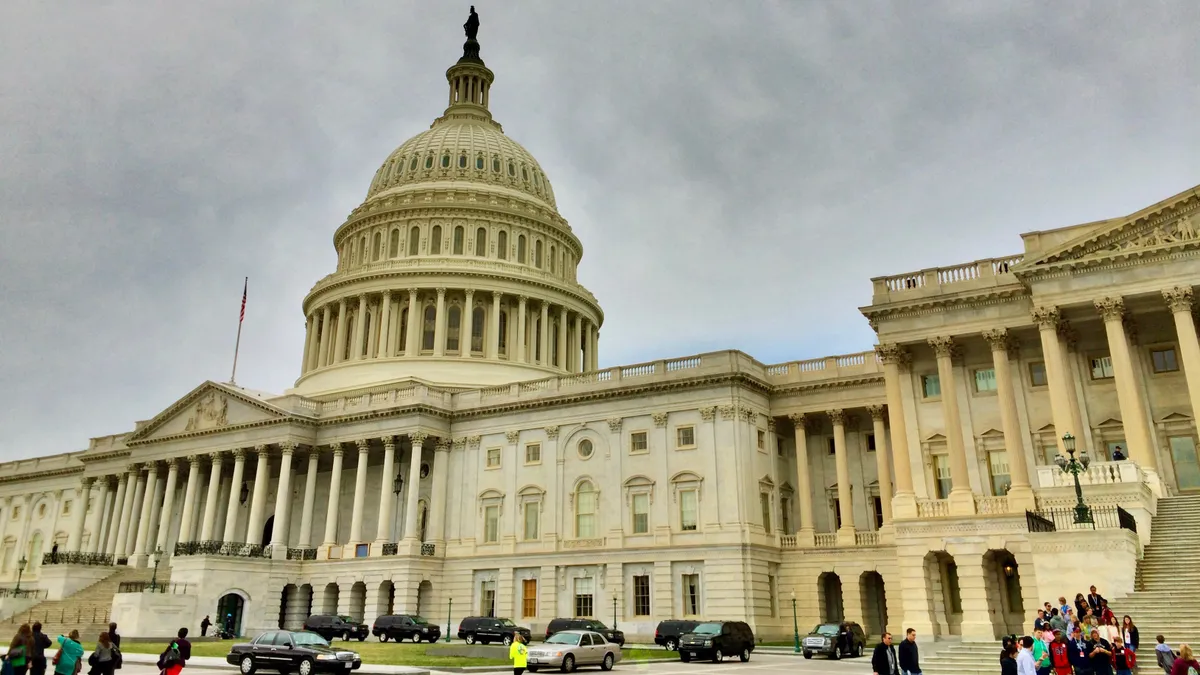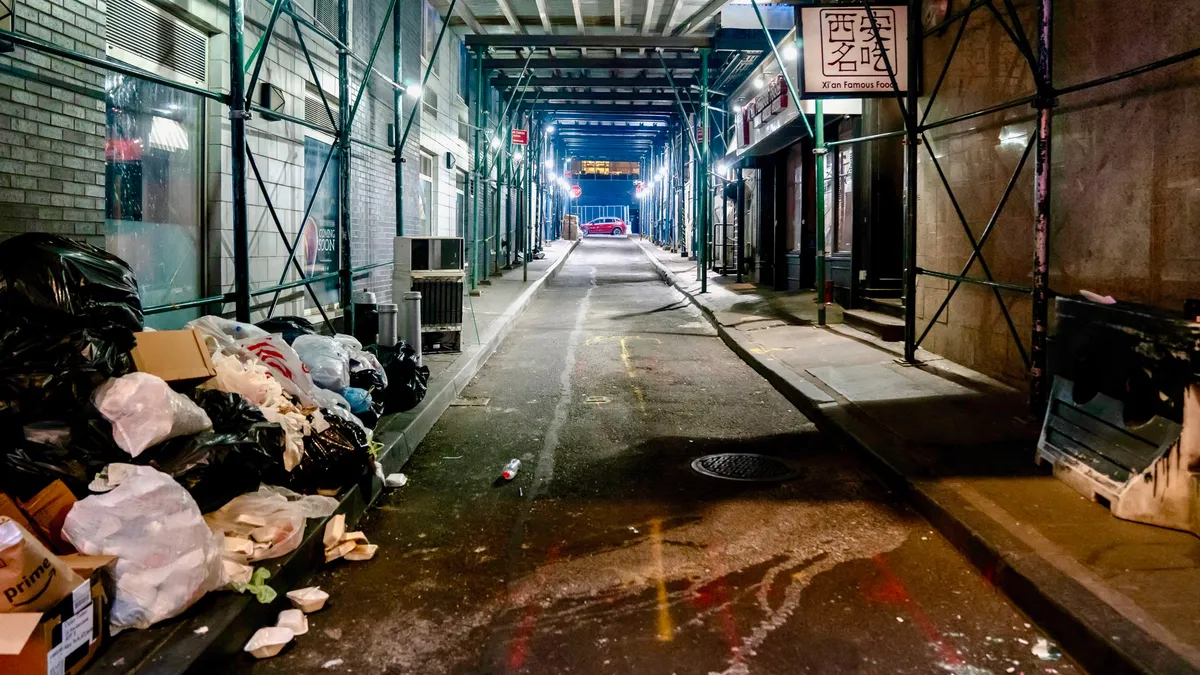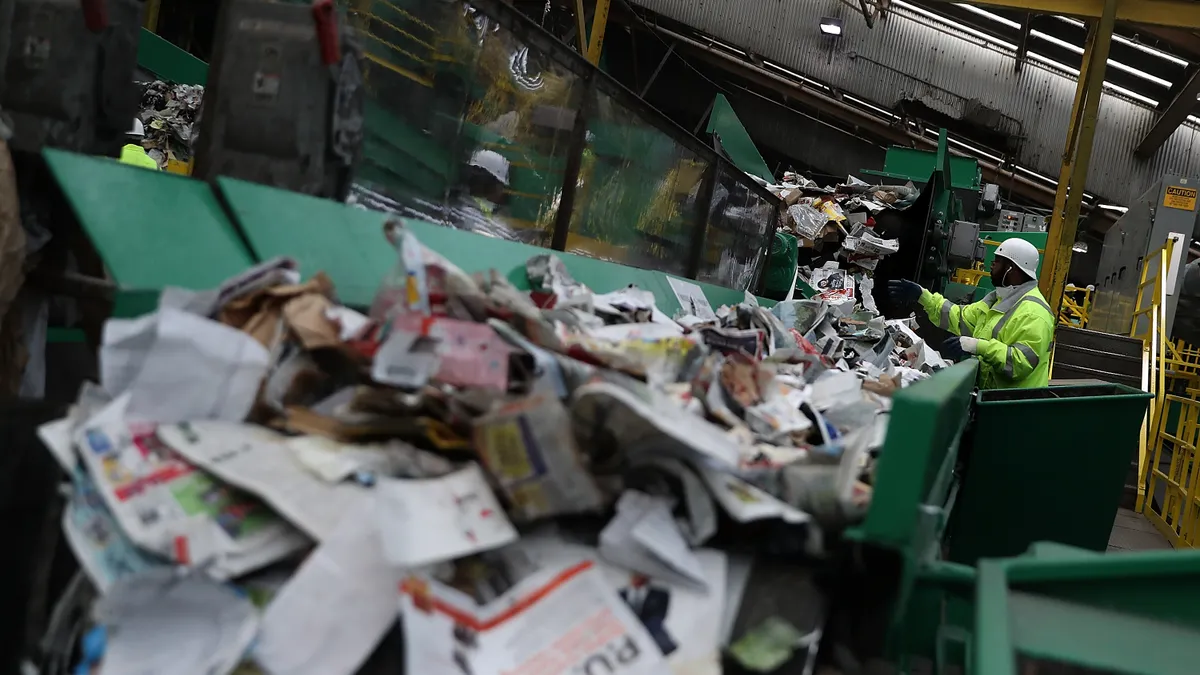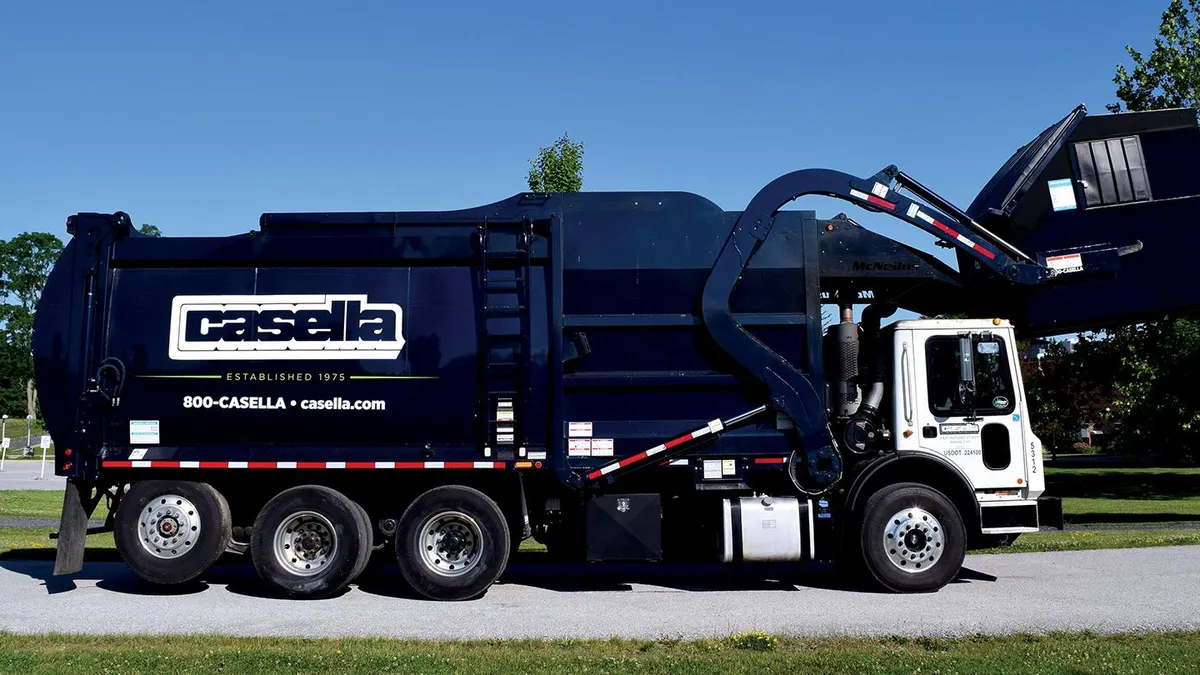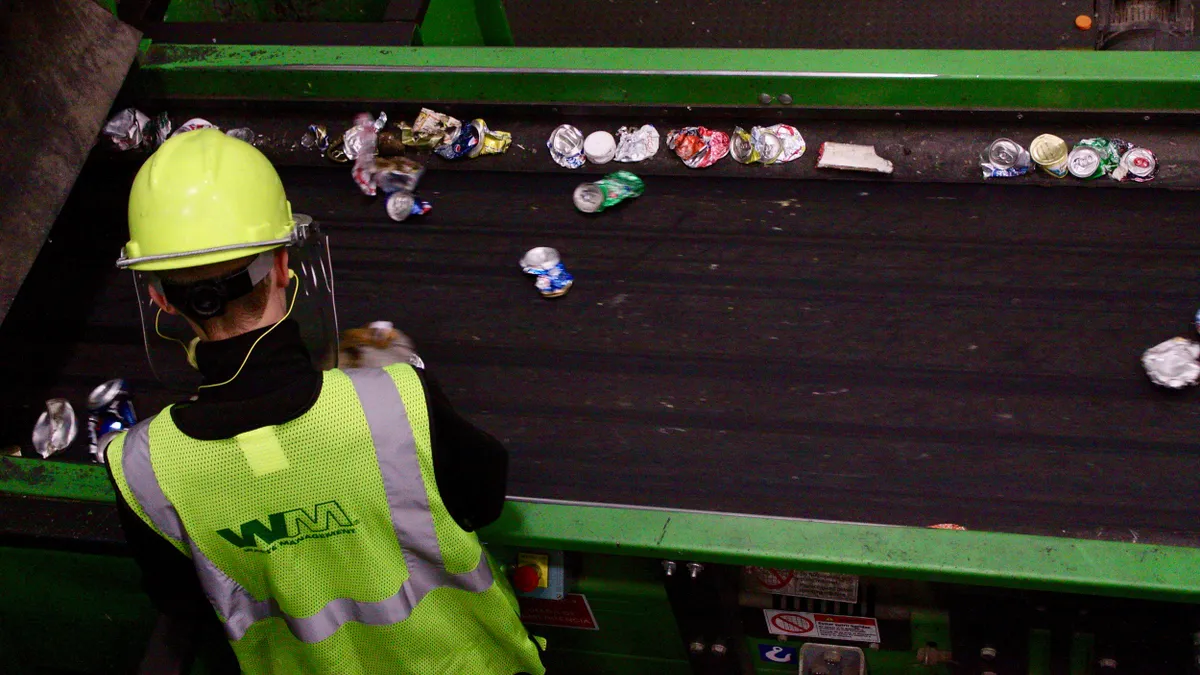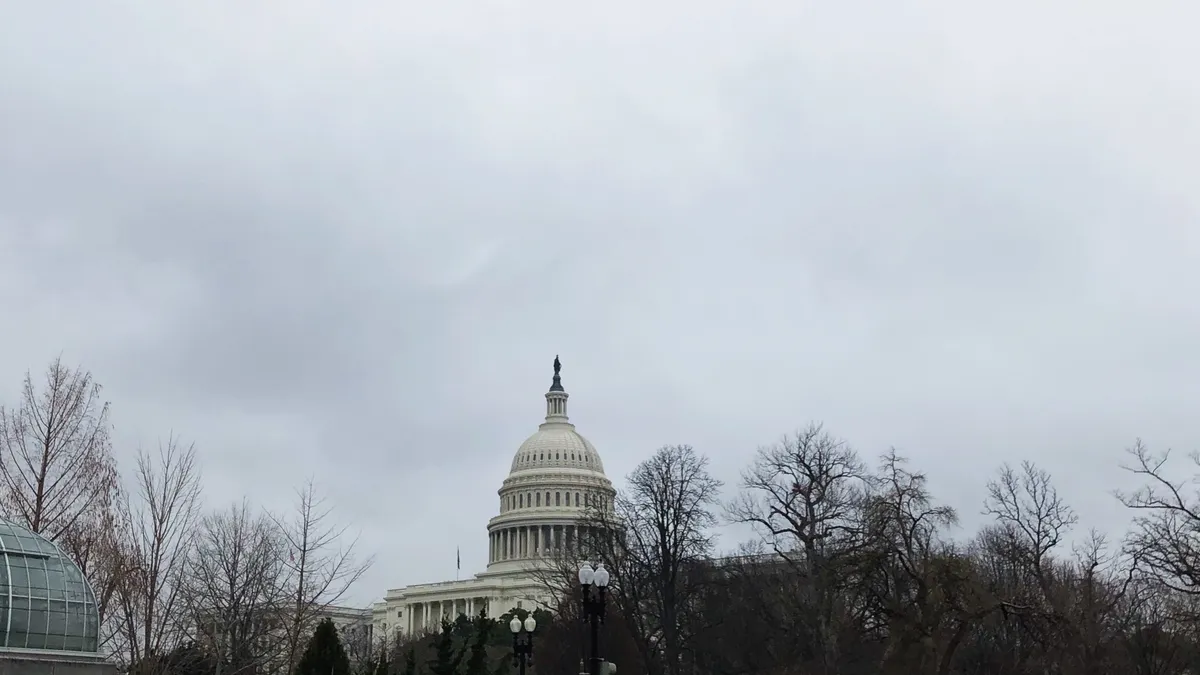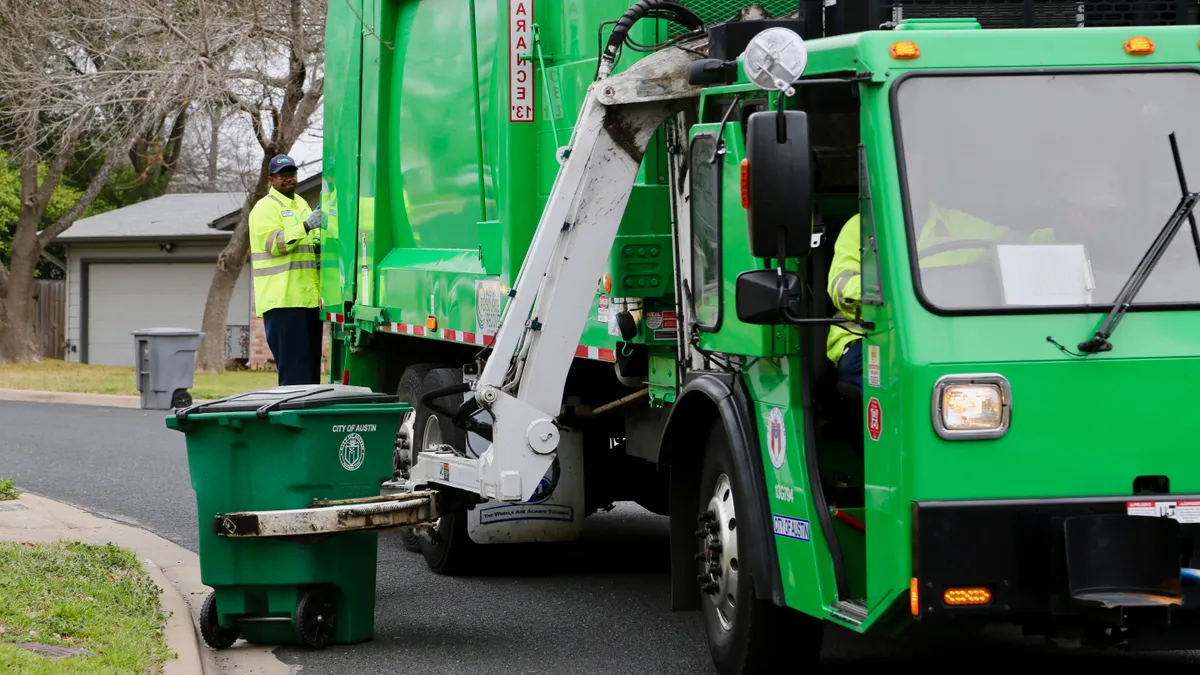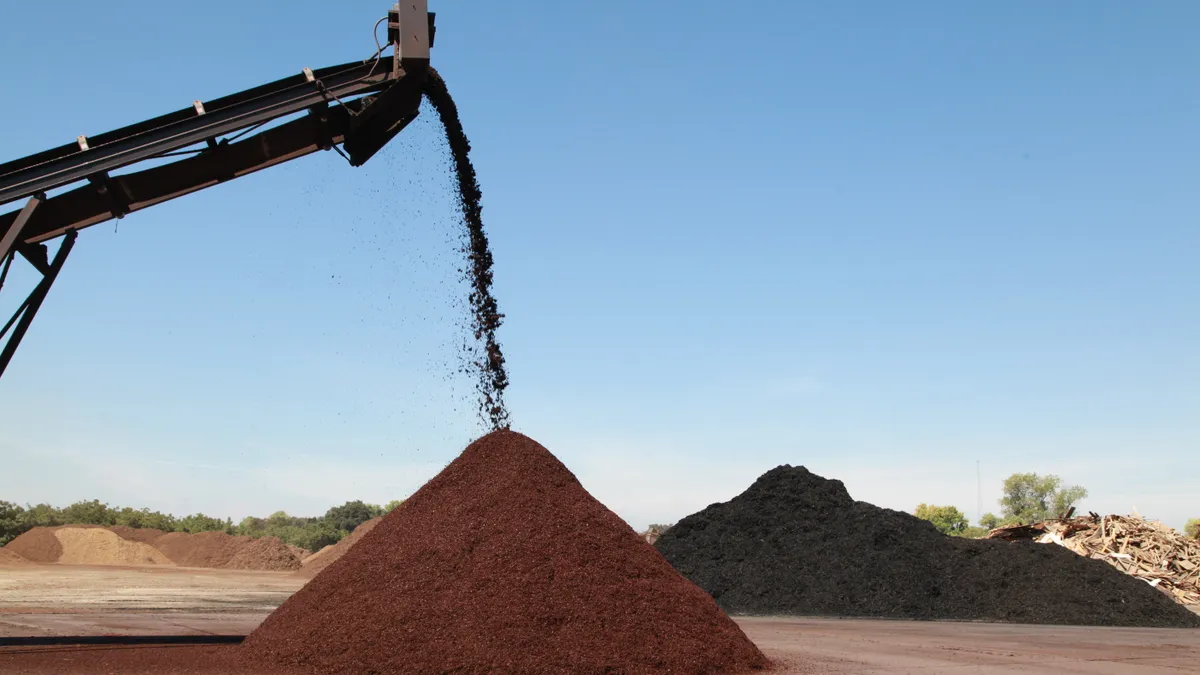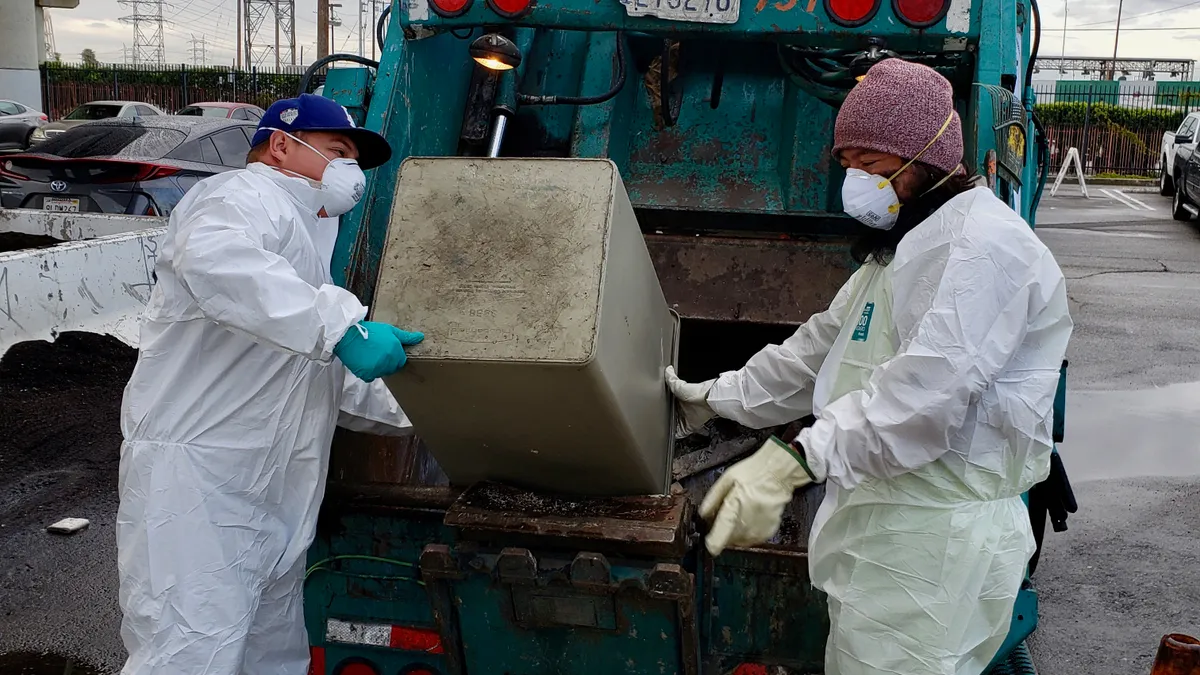Organics: Page 22
-
Roundup: Driver shortages hamper local waste collection, US recycling infrastructure begs $17B expansion
Plus: California's budget surplus yields $130 million proposal for recycling infrastructure, New York City progresses on solutions for its curbside trash problem, and more municipal news from around the U.S.
By Maria Rachal , Cole Rosengren • May 20, 2021 -
Roundup: New York City clears legislative hurdle on plastics reduction
The city council passed a bill meant to limit use of straws, a potential sign of growing acceptance for plastics reduction policies. Elsewhere, an American Biogas Council event spurred discussion of codigestion.
By Cole Rosengren , Maria Rachal • May 14, 2021 -
Boston expanding textile and organics recycling as it ramps up zero waste plan
Efforts to hit an 80% recycling rate by 2035 were delayed in part by the pandemic, but moves to expand drop-off programs show new momentum. Curbside organics collection remains an unresolved priority.
By Cole Rosengren • May 13, 2021 -
Composting infrastructure coalition seeks hundreds of millions for federal grants, loans
Given the Biden administration's focus on climate, environmental justice and infrastructure investment, advocates and trade groups view now as an apt time to pursue $200 million across a decade to help expand U.S. composting.
By Maria Rachal • May 11, 2021 -
Roundup: Food waste back in the spotlight
This year’s Stop Food Waste Day drew attention from national and local leaders fighting hunger and climate change. Plus, new data on waste diversion in Colorado, and recycling initiatives launching in Houston and Milwaukee.
By Maria Rachal • April 30, 2021 -
Roundup: Stimulus funding for city waste initiatives, DC and NY inch toward zero waste goals
The week of Earth Day saw news on zero waste plan reassessments, organics program expansions, reuse pilots and more. Catch up on updates from New York, Los Angeles, Washington, Boston and other cities around the country.
By Maria Rachal , Cole Rosengren • April 23, 2021 -
New York to revive curbside organics service amid criticism of lagging zero waste progress
The Department of Sanitation announced the return of multiple programs affected by pandemic budget cuts, following a council hearing about codifying the city's 2030 goal, but critics say more action is needed.
By Cole Rosengren • April 22, 2021 -
It's game on for packaging procurement as lead times lengthen. Can supplies keep up?
Stadiums and concessions anticipate surging demand as events resume. Recent pandemic effects have shifted ordering for food trays, clamshells, compostable packaging and more.
By Jen A. Miller • April 22, 2021 -
Opinion
New York City's waste future could be shaped by the closure of an island jail
Closing Rikers Island as a jail offers an opportunity to change aspects of New York's waste management infrastructure and potentially rethink expanding the city's role in overseeing it, former DSNY official Robert Lange writes.
By Robert Lange • April 15, 2021 -
Maryland governor allows organics diversion mandate to become law
The policy is set to take effect for large generators in 2023, after years of attempts. Proponents hope it will spur development of new regional composting and anaerobic digestion infrastructure.
By Cole Rosengren • Updated June 1, 2021 -
Food waste action plan calls for organics diversion infrastructure, compost market expansion
NRDC, ReFED and other partners, backed by cities like Atlanta and Baltimore, want federal facilities to divert their organic waste and purchase finished compost. They also seek $650 million in federal funds annually for local efforts.
By Maria Rachal • April 8, 2021 -
Washington, DC, zero waste bill is now law, though funding remains uncertain
The legislation – with big organics diversion implications for businesses, among other categories – was adjusted to take into account ongoing recovery from the coronavirus pandemic.
By Maria Rachal • April 5, 2021 -

 Retrieved from Twitter.
Retrieved from Twitter.
Roundup: Biden infrastructure plan light on waste details, report highlights recycling data gap
The sector reacts to the president's $2 trillion proposal, Eunomia digs into state recycling performance, organics pilots are on the rise, New York City is tackling litter and more local stories from around the country
By Maria Rachal , Cole Rosengren • April 1, 2021 -
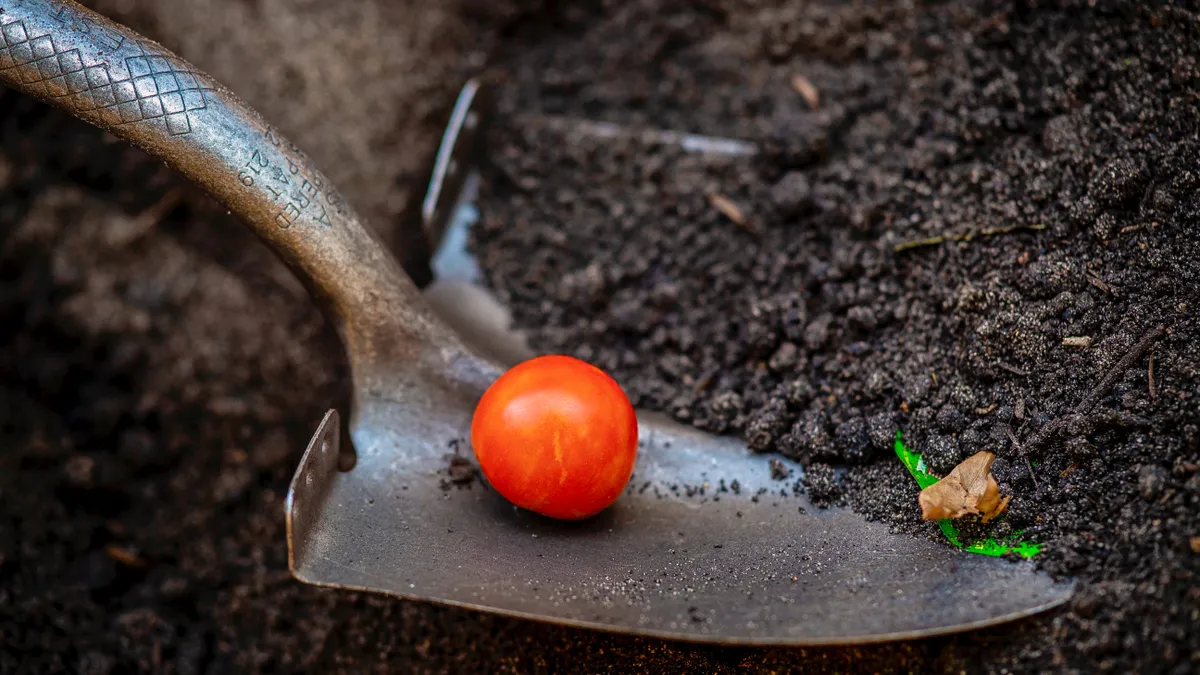
 Retrieved from U.S. Department of Agriculture.
Retrieved from U.S. Department of Agriculture.
LA, Philadelphia, DC compost leaders look to better leverage city park sites
Establishing public-private partnerships and sustainable distribution of responsibility at community composting sites are among the important tenets to consider, panelists at a U.S. Composting Council event shared.
By Maria Rachal • March 30, 2021 -
LIFT America Act's infrastructure proposals list landfill gas among renewable energy sources
The wide-ranging bill, which calls for numerous energy grid improvements, names landfill gas and municipal solid waste as renewable energy resources. It's one of multiple new federal proposals with waste implications.
By Megan Quinn • March 24, 2021 -
Deep Dive // NYC commercial waste reform
New York commercial waste overhaul on horizon, but funding unresolved
After a year-long pandemic delay, the city is moving on an RFP process to reshape the open market system. Dozens of companies recently took the first application step, potentially including newcomers Waste Management and Winters Bros.
By Cole Rosengren • March 19, 2021 -
Recology SF corruption investigation
Recology agrees to San Francisco rate settlement worth more than $107M, as competitors circle
The city attorney's office reached the deal while pursuing a broader public corruption investigation. Now, Waste Management, Republic Services and others see a window to revisit the company's local monopoly.
By Cole Rosengren • Updated March 5, 2021 -
2020 earnings coverage for US waste and recycling companies
Catch up on Waste Dive's quarterly analysis of results from Waste Management, Republic Services, Waste Connections, GFL Environmental, Covanta and Casella Waste Systems during 2020.
By Waste Dive Team • Feb. 24, 2021 -
2020 earnings coverage: Casella Waste Systems
This key Northeast company continued growing its dominant presence in the market amid the pandemic, with plans to further expand multiple key landfill assets.
By Waste Dive Team • Feb. 24, 2021 -
Biden's waste and recycling priorities
New action on horizon for sustainable materials management under Biden, experts predict
Recycling market development and food waste are among many issues stakeholders hope will receive renewed federal engagement, despite limited attention in the president's agenda to date.
By Cole Rosengren • Updated Feb. 17, 2021 -
Waste Management debuts recycled plastic uniforms, downplays landfills at annual ESG event
The national uniform rollout, and plans to invest $100 million in recycling infrastructure, were touted at a climate-focused sustainability forum. The industry's largest landfill company also described disposal as "a last resort."
By Cole Rosengren • Feb. 10, 2021 -
Environmental groups outline $1.3B worth of federal plastics reduction, recycling recommendations
Ahead of potential stimulus legislation, more than 250 groups are calling on the Biden administration and Congress to keep recycling priorities in mind. Proposals include $500 million for "new and improved" MRFs.
By Cole Rosengren • Feb. 5, 2021 -
Austin, Texas, pitches customer cost savings as curbside composting reaches over 200K homes
The final phase of Austin Resource Recovery's expansion comes as some other cities pull back on similar programs during the pandemic. Meanwhile, new data shows residential food waste remains a pressing issue.
By Maria Rachal • Feb. 4, 2021 -
7 takeaways on organics recycling trends from COMPOST2021
The U.S. Composting Council event featured perspectives on contamination reduction, market development, climate change and more from WeCare Denali, Waste Management, Recology and Atlas Organics.
By Cole Rosengren , Maria Rachal • Feb. 3, 2021 -
WASTECON: Coronavirus underscores shared challenges and adaptations for city leaders
Officials from New York, Toronto, Miami-Dade County, Philadelphia and Baltimore highlighted ongoing budget and staffing challenges nearly a year into the pandemic. Now, they're seizing the moment for long-term changes.
By Maria Rachal , Cole Rosengren • Feb. 1, 2021

